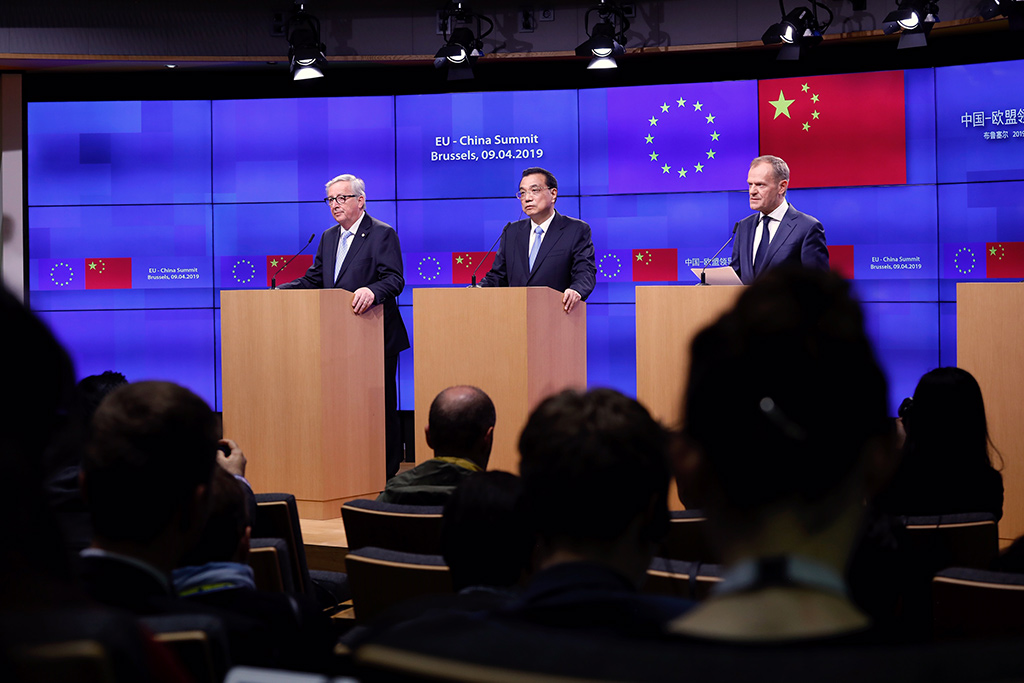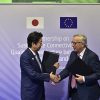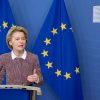
The new European Commission is set to be geopolitical. Ursula von der Leyen, the Commission President, wants the EU to become more active in the international arena, even assertive if needed. In a context of increasing hostility between two world powers, the US and China, and the rise of the Asian giant to become a systemic rival and economic competitor, the EU has reacted by attempting to use “the language of power”. Nevertheless, there is a long road from aiming to be geopolitically relevant and having that role, and the Commission will need to decide what level of assertiveness is the most suitable for its relations with China.
The EU is mainly an economic power, and thus, many of its concerns lay in the economic field. On this topic and with regards to China, the new Commission is focused on two key areas: levelling the playing field and controlling inward Foreign Direct Investment (FDI). The former was given extreme relevance by the President of the Commission, with four of her Commissioners, namely Phil Hogan (Trade), Margrethe Vestager (A Europe for the Digital Age and Competition), Valdis Dombrovskis (An Economy that Works for People), and Thierry Bretton (Internal Market) devoted to the issue. China is generally accused of unfair trade practices, such as using subsidies and state ownership of companies. These threaten internal competition within the European market. Furthermore, companies do not enjoy equal access to each other’s markets, which has led the EU to limit access of Chinese businesses to public procurement in Europe.
The second key area, controlling inward FDI, relates to the recent takeovers and acquisition of significant stakes by Chinese companies in businesses who operate in key structural sectors within Member States, such as the acquisition of German KUKA (robotics). Concern, thus, is not gratuitous.
Additionally, Commissioners will face the Chinese issue individually in other aspects of their respective mandates and duties. Firstly, Phil Hogan, Trade Commissioner, oversees finalizing the EU-China Comprehensive Agreement on Investment (CAI) between China and the EU before 2020 ends. For CAI, he demands more political commitment from his Chinese counterparts. Hogan will push China to cooperate in the WTO reform, addressing, among others, overcapacity and subsidies. Secondly, Valdis Dombrovskis, Executive Vice-President, will lead the strengthening of the euro in terms of payments, as a reserve currency and for debt issuance. This sounds slightly like deepening the international role of the euro, which might conflict with the overt Chinese intention to internationalize the RMB. Furthermore, Dombrovskis, will work for the competitiveness and enhanced strategic autonomy in value chains of the European Union. Once again, this points in the direction of standing up against US and Chinese leadership in key sectors that will guarantee the survival of the EU as a relevant player in the international arena. Margrethe Vestager will also strive to achieve strategic autonomy by stepping up EU technological and digital leadership along with Thierry Bretton, who will enhance Europe’s “technological sovereignty”. As High Representative of the European Union, Josep Borrell also focuses on the strategic autonomy of the EU, to reduce its significant dependence on the US and balance its reliance on the two superpowers.
The EU wants to be assertive, but how much assertiveness is appropriate? It is hard to answer this question since the EU both fears and needs China. But the EU also needs to stand up to China, not be bullied by its economics status, and clearly define by what rules both will be playing. If the EU wants to act as a geopolitically relevant power, it must demand the game to be a game of equals.
The Asian giant is a threat: its economic weight is astounding and not fully realized, its presence (and maybe influence) in EU Member States has increased significantly over the past years, and its military power is growing stronger. But it is also an opportunity for EU autonomy. The US is no longer to be counted on to uphold multilateralism or to act as a check to Chinese power in a “Europe-acceptable” way, especially with Donald Trump’s re-election being more than probable. What is more, as the ETNC report ‘Europe in the face of US-China rivalry’ pointed out and the US trade war against EU products proves, the EU is now a “foe” for the US.
Now that the US-China trade war seems to have slowed down, analysts say that the US will focus its attention and hunger on the EU. It is not sensible for the EU to fight simultaneously on two different fronts. Chinese officials are also “freer” from US hoarding and can concentrate on deepening and re-defining relations with the EU. It is also not in China’s interest to face animosity from two Western powers.
The European Commission needs to be geopolitical vis-à-vis China in an increasingly geopolitical world. How and to what levels is a different question. The Commission must ensure that China does not take the EU’s goodwill for granted, and China must earn it. The EU is a world leader in many aspects, and it might be better for China to have it on her side rather than not. The same goes the other way around.

